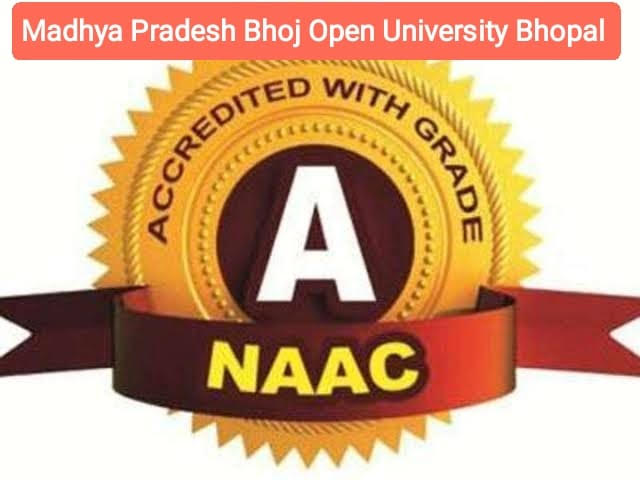CIQA
INSTITUTIONAL PREPAREDNESS FOR NEP 2020
|
1.Multidisciplinary/ interdisciplinary
|
The University is prepared to make changes to augment the overall capabilities of the learners as per the National Educational Policy 2020. The following are a few areas wherein the institution has already adopted or is ready to adapt practices pertaining to the transition toward the new paradigm. Choice of Research Topics: The University intends to start the research programs soon, and proposals to this effect have been sent to the UGC. Research topics would be such that they have relevance across disciplinary boundaries. · Collaborative Effort: The institution aims to encourage collaboration in research projects. Three research chairs have been established at the University for tribal studies, Gandhian studies, and topics concerning King Bhoj. · Interdisciplinary Collaboration: During the interdisciplinary collaboration, each member of the group will be provided with the opportunity to directly experience the concept and approach used across the group members' various specialties. Numerous MoUs have been signed with institutes of distinctive profiles. The University has taken up programs from Sanchi University to make its curriculum more versatile. · The University is offering courses with major, minor, and generic elective courses at the undergraduate level. · Collaborative Publication: The institute believes in a collaborative approach to publication. The NEP conference held by the institute witnessed scholars across disciplines pooling their research expertise on the theme. · Reorganising university curricula to foster interdisciplinary education: Academic council meetings are held at regular intervals for the design of programs other than undergraduate ones. SLM workshops will be conducted, and internal and external experts will be solicited for content preparation.
|
|
2. Academic Bank of Credits (ABC)
|
UGC implemented a rule on the Academic Bank of Credit through a gazette notice published by the government of India on 28 July 2021. The university has taken concrete steps to develop the required facility. · University is adopting a grading system as a part of examination reform, which is an efficient system for the performance assessment of the learners. · The University has a lateral entry option for select professional programs, which allows more flexibility. This provision is being widened to cover more programs. · The university has officially registered in the ABC and National Academic Depository NAD/ Digi locker. There is a team to look after Digi locker cell for data uploading. Once the data is filled up, the credit bank system will be operationalized.
|
|
3.Skill development
|
· The university runs several degree and diploma programmes such as Bachelor of Business Administration, Bachelor of Commerce, Bachelor of Education, Certificate program in Yoga etc. to promote skill development in learners. The vocational programmes are so designed to achieve practical knowledge in the chosen field. · The university is starting an e-mentoring program for students, which can provide them a direction while choosing an appropriate career path.
|
|
4. Appropriate integration of the Indian Knowledge system (teaching in Indian Language, and culture, using online courses):
|
The university recognizes the importance of popularizing Indian languages. SLMs are available in Hindi as well as English. The University is committed to a value-based education system, and so has introduced programs like Ramcharitmanas for spiritual development.
|
|
4.Focus on Outcome based education (OBE)
|
· The university has developed the programme outline based on NEP recommendations and have defined program-specific outcomes and course outcomes. · Lectures, seminars, tutorials/workshops, and project-based internships/apprenticeships/research and fieldwork are some of the recommended methods of instruction at the University. · To develop higher-order skills among learners, the university has initiated programmes in artificial intelligence, cyber security, etc.
|
|
4. Distance education/online education |
The university functions in open and distance learning (ODL) mode. The university is also making plans to provide dedicated vocational courses through online mode in the coming years. Google Meet, Zoom, YouTube and other platforms are used in teaching and reaching out to students. Developing MOOCs for supplementary learning is also on the anvil.
|
2 (b)Institutional Initiatives for Electoral Literacy
|
Whether Electoral Literacy Club (ELC) has been set up? |
The Electoral Literacy Club has been set up at Madhya Pradesh Bhoj Open University, Bhopal, under the Social Responsibility Cell. |
|
2. Whether students’ co-ordinator and co-ordinating faculty members are appointed by the College and whether the ELCs are functional? Whether the ELCs are representative in character? |
Electoral Literacy Club functions under the supervision of the Social Responsibility Cell of the university. Faculty members in this committee are the constituent members. The broad objectives of ELC are to: • To promote awareness of the ‘Right to Vote’ among learners, faculty members, and community level. • To facilitate voter registration for its eligible members who are not yet registered. • To familiarize the targeted inhabitants with voting machines like EVM and VVPAT. • To help students understand the value of their vote. • To inspire citizens to exercise adult suffrage right confidently •To create awareness of voting ethics. |
|
3. What innovative programmes and initiatives are undertaken by the ELCs? These may include voluntary contributions by the students in electoral processes-participation in voter registration of students and communities where they come from, assisting district election administration in the conduct of the poll, voter awareness campaigns, promotion of ethical voting, enhancing the participation of the underprivileged sections of society especially transgender, commercial sex workers, disabled persons, senior citizens, etc. |
Various initiatives were undertaken by the Electoral Literacy Club of the institution to educate and spread mass education for the broader benefit of the public and society. 1) As part of social responsibility, the University has adopted ten villages in two districts of the state. While disseminating social functions in these adopted villages, attempts are made to convey the message of the need to vote for a healthy democracy. 2) Awareness Programmes at the institutional level are undertaken to bring consciousness to electoral literacy among learners of the university. 3) The faculty members in the University regularly take part in election duties. |
|
4. Any socially relevant projects/initiatives taken by College in electoral-related issues, especially research projects, surveys, awareness drives, creating content, publications highlighting their contribution to advancing democratic values and participation in electoral processes, etc. |
As part of the awareness programme, the University has republished an article by a faculty member on the need to vote in the official portal. |
|
5. Extent of students above 18 years who are yet to be enrolled as voters in the electoral roll and efforts by ELCs as well as efforts by the College to institutionalize mechanisms to register eligible students as voters. |
In order to enroll eligible learners as voters in the electoral roll, the University communicates to the students through the regional centers and inspire them to register in the electoral roll. Voters is day is celebrated. |


